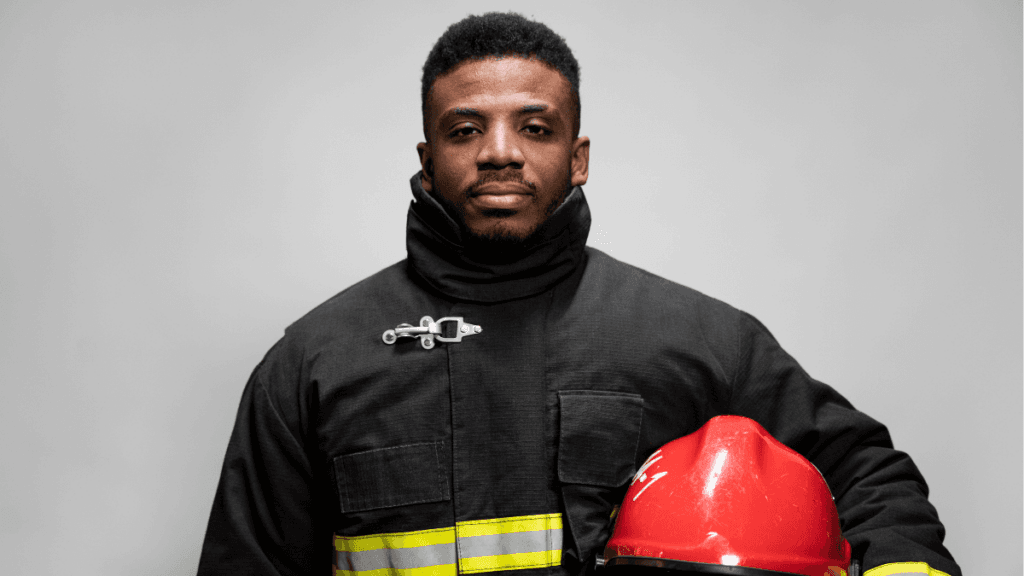Firefighters are everyday heroes who risk their lives to save others and protect property from devastating fires. In South Africa, becoming a firefighter requires dedication, physical strength, and the right qualifications.
This article will guide you through the steps and requirements to become a firefighter in South Africa, helping you turn your dream into a reality.
1. Understanding the Role of a Firefighter
Before embarking on the journey, it’s essential to understand what being a firefighter entails. A Firefighter in South Africa respond to emergencies like fires, car accidents, and natural disasters. Their primary responsibilities include:
- Extinguishing fires.
- Rescuing people and animals.
- Providing first aid to injured individuals.
- Educating communities about fire safety.
Firefighting can be physically and emotionally demanding, requiring teamwork, quick thinking, and a commitment to safety.
2. Minimum Requirements to Become a Firefighter
To qualify as a firefighter in South Africa, you must meet these basic requirements:
- Age: Must be at least 18 years old.
- Education: A Grade 12 (Matric) certificate with passes in Mathematics and Physical Science.
- Physical Fitness: Excellent physical fitness is crucial for the demanding tasks of firefighting. You will need to pass a fitness assessment.
- Driver’s License: A valid Code 10 (C1) driver’s license is often a requirement for operating firefighting vehicles.
- Medical Fitness: You must undergo and pass a medical examination to ensure you are healthy enough to handle the job.
- Clean Criminal Record: Firefighters are trusted with public safety, so a clean criminal record is essential.
3. Key Skills and Traits for Success
To succeed as a Firefighter in South Africa, you need certain skills and personal qualities, including:
- Physical Strength and Stamina: The job requires heavy lifting and working under intense physical conditions.
- Problem-Solving Skills: You must think quickly and find solutions during emergencies.
- Teamwork: Firefighters rely on each other in life-threatening situations.
- Courage and Resilience: Facing dangerous scenarios is part of the job.
- Communication Skills: Being able to communicate effectively during rescues and with the public is critical.
4. Education and Training
Once you meet the basic requirements, the next step is acquiring the necessary training. Here’s how to proceed:
4.1. Obtain Firefighter Training
Firefighter training is offered by various institutions in South Africa, including municipal fire academies and private training centers. Some well-known institutions include:
- South African Emergency Services Institute (SAESI): Offers accredited training for firefighters.
- Fire and Emergency Training Academy: Located in major cities like Cape Town, this academy provides foundational and advanced courses.
- Tshwane University of Technology (TUT): Offers fire technology courses that combine theoretical and practical training.
The training courses are divided into levels, such as:
- Basic Firefighter Training: Teaches foundational firefighting skills.
- Advanced Firefighter Training: Focuses on more complex fire rescue techniques and management.
4.2. Earn Relevant Certifications
To increase your employability, earn additional certifications such as:
- First Aid Certificate: Provides skills for handling medical emergencies.
- Hazardous Materials (Hazmat) Training: Teaches how to manage incidents involving dangerous substances.
- Advanced Driving Certificate: Enhances your ability to drive emergency vehicles.
4.3. Complete an Apprenticeship
Many firefighting positions require practical experience. After completing your training, apply for an apprenticeship or internship with a fire department. This hands-on experience helps you gain confidence and improve your skills.
5. Application Process for Firefighting Jobs
Once you’ve completed your training, follow these steps to apply for firefighting positions:
5.1. Check for Open Positions
Look for job openings on municipal websites, fire department portals, and platforms like Careers24 or Indeed. Fire departments in cities like Johannesburg, Cape Town, and Durban often have openings.
5.2. Prepare Your Application
Your application should include:
- A detailed CV highlighting your education, training, and experience.
- Certified copies of your Matric certificate, certifications, and driver’s license.
- A cover letter expressing your interest in the role.
Tip: How to Write a CV With No Experience in 2025 (Examples)
5.3. Pass the Selection Process
If shortlisted, you’ll undergo several assessments, including:
- Physical Fitness Test: Evaluates your strength, endurance, and agility.
- Psychometric Test: Assesses your mental preparedness for the job.
- Panel Interview: Tests your knowledge of fire safety and emergency response.
6. Career Advancement Opportunities
Once you’re a qualified firefighter, there are several pathways for career growth, such as:
- Fire Officer Training: Qualify for leadership roles like Station Commander.
- Specialized Training: Gain expertise in areas like urban search and rescue, wildfire management, or fire investigation.
- Fire Technology Studies: Enroll in advanced courses to enhance your technical skills.
7. Challenges of Being a Firefighter
Firefighting is rewarding but comes with its challenges:
- Dangerous Work Environment: Firefighters face risks like burns, smoke inhalation, and structural collapses.
- Irregular Hours: You may work long shifts, including nights, weekends, and holidays.
- Emotional Strain: Rescuing people in distress and witnessing trauma can be emotionally taxing.
8. Rewards of a Firefighting Career
Despite the challenges, firefighting offers immense rewards:
- The satisfaction of saving lives and protecting communities.
- Job stability and opportunities for advancement.
- Strong camaraderie among team members.
9. Tips for Aspiring Firefighters
Here are some tips to help you succeed in your firefighting journey:
- Stay physically active by participating in activities like running, weightlifting, or swimming.
- Volunteer with local fire departments to gain experience and network with professionals.
- Attend fire safety workshops and seminars to expand your knowledge.
Also read: Breaking Into Hospitality: Launch Your Dream Career with Zero Experience
Becoming a firefighter in South Africa requires determination, physical fitness, and proper training. By following the steps outlined in this guide, you can embark on a fulfilling career that makes a real difference in people’s lives. Whether you dream of saving lives, fighting fires, or educating communities about fire safety, this path offers immense personal and professional rewards.




